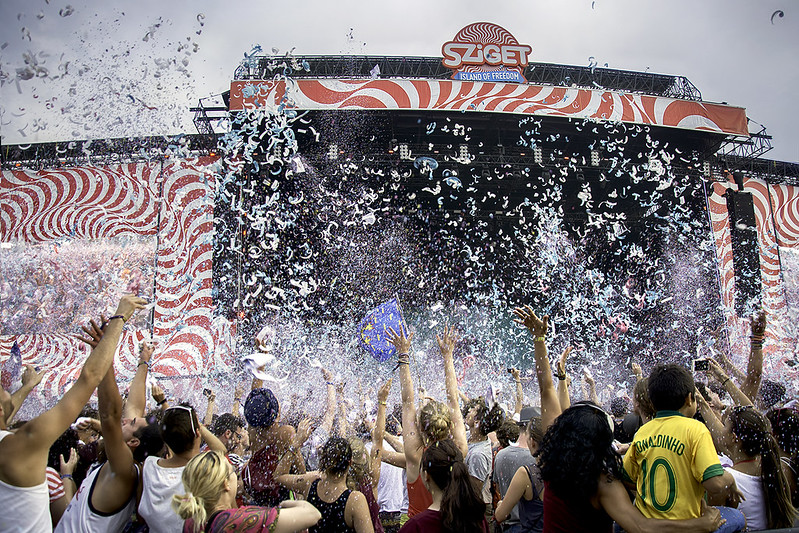Seasons of Splendor: Exploring Budapest Through the Year
Budapest, the vibrant capital of Hungary, is a city with many faces, each beautifully reflecting the changing seasons. This guide gives a month-by-month breakdown of the main events, traditions, and festivals that breathe life into Budapest, revealing its rich cultural identity and historical legacy.
SPRING
March ushers in the Spring Uprising (15 Mar), a public holiday celebrating the 1848 rebellion against the Habsburg occupation. Thousands don the national colors of red, white, and green, filling the streets with speeches, street theatre, and commemorative ceremonies.
The Spring Festival, from late March to mid-April, is an international celebration of classical music and ballet. Top national and international musicians gather in churches and concert halls, offering performances that span the classical tradition, folk music, pop, and jazz.
Budapest experiences a relatively arid climate, characterized by intermittent periods of heavy rainfall followed by prolonged dry spells. The city follows a distinct rainfall pattern, with intense downpours lasting for approximately two days, after which the region remains rain-free for several weeks. Among the months, June receives the highest amount of rainfall, closely followed by May, July, August, and November, which exhibit slightly lower levels of precipitation. Typically, autumn is the driest season, while the winter months may see some occurrences of snowfall. Learn more here about the weather in Budapest.
April sees the celebration of Easter, with traditional services held across the city’s many churches. Additionally, the Budapest International Book Festival provides a highlight for the publishing industry and book enthusiasts alike.

May Day (1 May) is marked by vibrant celebrations in public parks across the city, featuring craft markets, street performers, and an array of local food and drink.
SUMMER
June welcomes the Open-Air Theatre Festival, a summer-long arts festival set amidst the natural beauty of Margaret and Óbuda Islands. Other key events include the Budapesti Búcsú, celebrating the departure of Soviet troops from Hungary, and the Danube Carnival International Cultural Festival.
July brings the Hungarian Grand Prix, a landmark event in the Hungarian sporting calendar. The Chain Bridge Festival and the Budafest Summer Music Festival offer a series of concerts, traditional arts and crafts, street theatre, parades, and activities for children and adults alike.

Budapest experiences distinct and well-defined seasons with noticeable temperature variations. Starting in March, the daytime temperatures in the city begin to rise rapidly. By June, it is common for the thermometer to reach 30°C (90°F) or even higher, indicating the arrival of hot summer weather. As September approaches, the weather becomes cooler, and temperatures gradually decline. In January, the coldest month, the temperature drops significantly, often plunging well below freezing. This sharp contrast in temperatures throughout the year reflects the seasonal shifts experienced in Budapest.
August celebrates St István’s Day (20 Aug) with a grand procession and a spectacular fireworks display along the Danube. The month also sees the Sziget Festival, a week-long music festival featuring renowned bands on Óbuda Island.

AUTUMN
September features the Jewish Summer Cultural Festival and the Budapest Wine Festival, offering wine tastings, folk dancing, and a celebration of Jewish heritage through a book fair, an Israeli film festival, and art exhibitions.
October hosts the Budapest International Marathon and Running Festival. The Vienna-Budapest Super Marathon Running Competition also strengthens ties between Austria and Hungary. Remembrance Day (23 Oct) is a national day of mourning, remembering the 1956 Uprising.
WINTER
November begins the festive season with the Budapest Christmas Fair transforming Vörösmarty Square into a marketplace filled with local artisans and culinary delights.
December continues the Christmas Fair alongside the Silver and Gold Sunday shopping spree. Mikulás, or St Nicholas Day (6 Dec), is a day for children to receive gifts from Santa. The year culminates in Szilveszter (31 Dec), the New Year’s Eve celebration marked by citywide music and fireworks.

January starts with the New Year’s Gala Concert, featuring performances from outstanding Hungarian and foreign artists.
February hosts the Hungarian Film Festival and the Masked Ball Season, where Budapest forgets the winter chill and warms up to Mardi Gras-style festivities.
This captivating journey through Budapest’s annual calendar reveals the city’s dynamic spirit and cultural richness. Immerse yourself in Budapest’s myriad events and traditions, creating memories that last a lifetime.